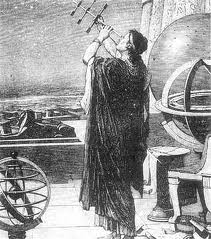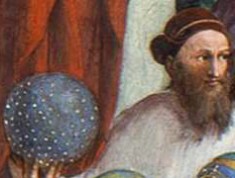| Hipparchus | |
|---|---|
 |
|
| Astronomer | |
| Specialty | Astronomy, geometry, trigonometry, lunar & solar theory |
| Born | c. 190 BC Nicaea |
| Died | c. 120 BC Rhodes |
| Nationality | Greek |
During the Hellenistic period, few Greek astronomers were as distinguished and influential as Hipparchus. Over the course of his life, Hipparchus would be a very accomplished astronomer and mathematician. He is believed to have been the founder of trigonometry and, although he made the discovery somewhat by accident, he is credited for revealing the precession of the equinoxes.
Early Life of Hipparchus
Not much is known about the early days of Hipparchus since no records exist and, for that matter, there is reason to believe they were necessarily kept in the first place. We do know he was born around 190 B.C. The birthplace is suggested to be Nicaea, and he did seem to start working as a professional astronomer while he was in his 30’s. His body of work was more than merely impressive and it is commonly argued that he is the greatest of all astronomers from antiquity.
Astronomical Observations
Hipparchus was able to become the very first astronomer to actually craft completely accurate models detailing the motion of the moon and the sun. Not all of his models survived to the modern day so he may have made numerous other discoveries that have become lost to history. He was eventually able to come up with a means of predicting solar eclipses thanks in large part to his knowledge about astronomy and his innovative discoveries in trigonometry.
Moon and Sun Discoveries
The various different discoveries made about the moon were quite impressive. He was able to determine the motion and orbit of the moon. Theories had existed about both the motion and the orbit, but none were as crystal clear and as detailed as what Hipparchus determined. The same could be said about what he learned regarding the motion and orbit of the sun. He was even able to determine accurate figures about the distance between the sun and the moon along with the size of both.
Instruments of Astronomy
 There were several innovative and helpful instruments related to astronomy that were either invented by or improved upon by Hipparchus. He is commonly credited with having made the first astrolabion. He also wrote critiques about the equipment and methods employed by other famous astronomers and mathematicians.
There were several innovative and helpful instruments related to astronomy that were either invented by or improved upon by Hipparchus. He is commonly credited with having made the first astrolabion. He also wrote critiques about the equipment and methods employed by other famous astronomers and mathematicians.
Among those he critiqued was Eratosthenes, the famous geographer of antiquity. The critique spanned three full volumes. The works were not poorly composed. The treatises had tremendous merit and offered new insights into the works of the great geographer.
Trigonometry and Hipparchus
In order to compute the orbits of the sun and the moon, Hipparchus had to be very innovative and create the trigonometric table. Trigonometry is an area of mathematics that is faced on the area of angles. Hipparchus made an incredible number of discoveries in the realm of trigonometry and the understanding of triangles was increased dramatically. The impact on these discoveries in the world of astronomy was significant as evidenced by the aforementioned ability to chart the motions of the moon and the sun.
Interestingly, there is a chord table that Hipparchus describes in his writings that has now been lost. The chord table was supposed to have helped formulate the length of chords on an angle. Again, this table has become lost. At least we do know of its existence. Other achievements made by Hipparchus could very well be gone without any trace as is the unfortunate case when over 2,000 years of time passes.
The star catalog would be one such work that has also been lost. We do know of its existence based on newer versions that remain, but the original catalog itself has long since been lost to time. He was also able to create a truly novel globe that also displayed the various constellations. The globe was based on a number of his trigonometric and astronomy observations.
Death and Legacy of Hipparchus
Hipparchus passed away around 120 B.C. It is believed that the final location where he lived was the Greek Isle of Rhodes. No one knows how he passed away. Today, his legacy reveals him to be the man who was one of the greatest and most influential astronomers of his era.